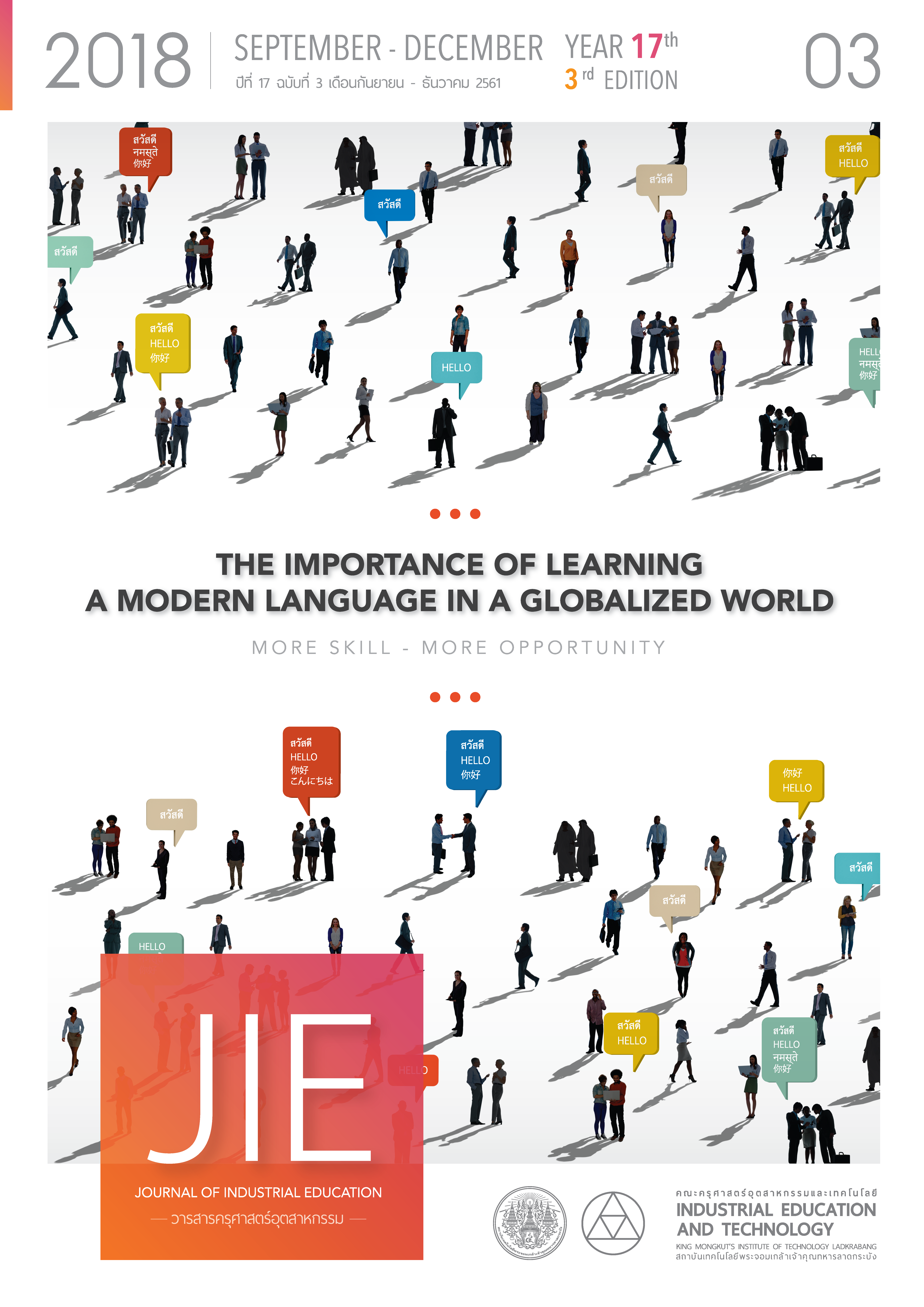PARENTAL INVOLVEMENT IN PROMOTING THE DEVELOPMENT OF SOCIAL SKILLS FOR CHILDREN WITH SPECIAL NEEDS AT WATLADPRAO SCHOOL
Keywords:
Children with Special Needs, Social Skills, Parental InvolvementAbstract
The objectives of research were 1) to study social skills behavior problems of children with special needs, 2) to study parental involvement in promoting social skills development for children with special needs, and 3) to reduce social skills behavior problems of children with special needs at Watladprao School. An A-B-A-B single subject design was used across the five participants selected for the study.
It was found that
1. The problematic social skills of children with special needs included 1) walking around, 2) not being assertive, being passive, 3) afraid to speak with other, 4) being willful, cry, 5) not to wait, 6) not sharing their toys with others, 7) taking other people’s belongings without permission, 8) feeling frustrated when they were unsatisfied, 9) aggressive, destroying things when they were angry, and 10) giving a hug or follow the others at inappropriate times.
2. The sample parents indicated their involvement in promoting social skills for students with special needs was a good level ( = 3.53). Regarding parental involvement aspects, it was found that the parents rated their involvement at a good level on parenting, and child support while promotion and development of children and relationships between home and school aspects were indicated at a moderate level.
3. Parental involvement was found to reduce the behavioral problems of four children whereas the behavioral problem of the last child was not decrease.
References
[2] Issaree Khueansuwan. 2009. Designing the developmental enhancement program based on DIR for an Autistic child. Master of Nursing Science (Mental Health and Psychiatric Nursing). Chiang Mai University.
[3] Bureau of Supervision and Development of Education. 2000. Research in the classroom to Improve learning. Bangkok: Religion Printing.
[4] Gray, C., & Garand, J. D. 1993. Social Stories: Improving responses of students with autism with accurate social information. Focus on Autistic Behavior, 8, p.1–10.
[5] Heiman, G. W. 1995. Research Methods in Psychology. Boston: Houghton Miffin.
[6] Shaughnessy, J.J., Zechmeister , E.B., & Zechmeister, J.S. 2000. Research Methods in Psychology. 5th ed. Singapore: McGraw-Hill.
[7] Khuncharoen, W., Disathaporn, C., Boonthima, R., and Burasirirak, S. 2016. The Development of Guardians’ Partcipation Model in Education Activities of Secondary Demonstration School in Bangkok. Journal of Industrial Education, 15(3), p.75-81.
[8] Office of the National Education Commission. 2001. Development of a network for family education in Thai society. Bangkok: Dee Printing.
[9] Epstein, Joyce L. and other. 1997. School, Family, Community Partnerships: Your Hand book Action. Thousand Oaks: Corwin Press. [10] Limsila, P. 2007. A Guide to Autistic Child Care. Samut Prakan: Yuwaprasart Waithayopathum Hospital.
Downloads
Published
How to Cite
Issue
Section
License
"The opinions and contents including the words in papers are responsibility by the authors."
"ข้อคิดเห็น เนื้อหา รวมทั้งการใช้ภาษาในบทความถือเป็นความรับผิดชอบของผู้เขียน"



